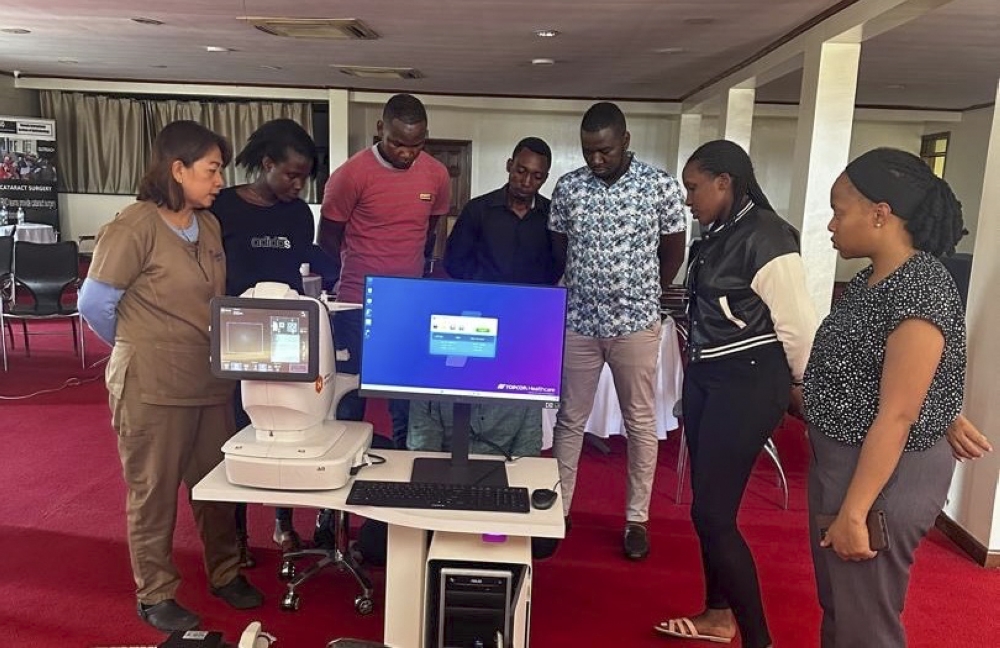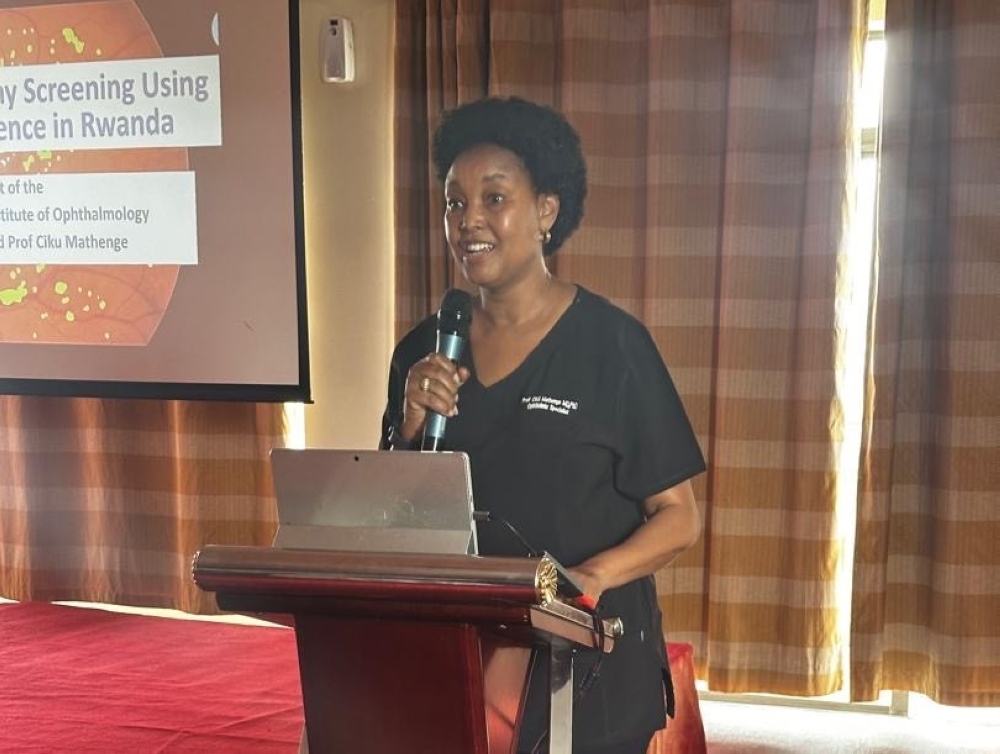

An new innovative initiative is set to transform eye care for diabetic patients across Rwanda, offering early detection of eye complications through digital imaging and artificial intelligence (AI).
Spearheaded by Rwanda International Institute of Ophthalmology (RIIO) and led by Dr. Ciku Mathenge, a medical retina specialist and co-founder of RIIO, the programme launched on October 25 in Kigali, aims to prevent blindness in diabetes patients by detecting eye conditions before irreversible damage occurs.
ALSO READ: Transforming eye care in Rwanda: Expert sheds light on country’s plans to improve vision health
Speaking at a multi-stakeholder workshop organised by RIIO, Dr. Mathenge described the programme’s vision of integrating AI-driven eye screening within diabetes clinics across Rwanda.
"The workshop brings together key players from patients to healthcare providers and policymakers to build consensus on how to successfully implement this project. This initiative allows us to catch diabetic retinopathy early, preventing blindness and reducing the burden on eye specialists,” said Dr. Mathenge.


According to Dr. Mathenge, the initial work for the programme began in 2021, with RIIO collaborating with Rwanda Diabetes Association (RDA) and hospitals in Nyamata, Masaka, and Kibagabaga to test the technology.
"These trials aimed to assess whether AI could accurately analyse retinal images for signs of diabetic retinopathy – an eye condition common in diabetes patients that can cause vision loss and blindness. After three years of testing, the results were positive. The AI technology proved effective in identifying retinal changes, bringing a promising solution to an area with limited eye specialists,” she said.
ALSO READ: The evolution of Rwanda’s eye care system
She noted that the risks are high, as approximately 5% of Rwanda’s population lives with diabetes. Dr. Mathenge stressed that diabetic retinopathy affects about 30% of diabetes patients, and early diagnosis is essential to prevent progression to blindness.
"Sight loss is one of the greatest fears among people with diabetes, yet it’s preventable if we detect the disease early,” she emphasised. The medical retina specialist added that with a limited number of ophthalmologists nationwide and inadequate resources in rural areas, access to specialised eye care for diabetic patients has been a persistent challenge in Rwanda. She noted that the programme aims to bridge this gap by installing digital imaging cameras in diabetes clinics across the country, where routine diabetes check-ups already occur. Nurses and diabetes doctors, rather than eye specialists, will operate the cameras, taking retinal images that AI will analyse for early signs of eye disease.
"The AI, acting as a ‘virtual eye specialist,’ provides an immediate diagnosis, allowing patients to receive care without needing to visit an ophthalmology clinic unless necessary.”
ALSO READ: Mashariki synergy: How a partnership between a Rwandan and Kenyan doctor birthed an eye hospital
Dr. Mathenge said that RIIO has already trained nurses at RDA to operate the imaging cameras independently, and the institute plans further training workshops for additional healthcare staff in the coming months. She noted that the first four cameras for the programme will be placed at RDA, Rwanda Military Hospital, Frontier Diagnostic Center, and the Rwanda Biomedical Center (RBC) tent during car-free days. These locations provide accessible options for diabetic patients in Kigali and nearby regions to receive eye screenings.
While the initial phase of the programme will be funded, covering the cost of the cameras and AI access for about two years, RIIO and its partners are already strategising on how to make the programme financially sustainable in the long term.
"The aim is to integrate this service within Rwanda’s healthcare system so it becomes part of the standard care for diabetes patients, without additional costs. We are fortunate to have supportive partners covering these initial expenses, but the end goal is to have it funded through public health insurance or government programmes,” said Dr. Mathenge
As noted, AI’s role in the programme is particularly impactful given Rwanda’s shortage of eye specialists. By enabling diabetes doctors to screen for eye complications on-site, AI technology alleviates the demand on ophthalmologists, who are then free to focus on patients with more severe needs.
Dr. Mathenge explained: "As a retina specialist, I now primarily see cases that truly require my intervention. The technology has streamlined my workload, making my time and expertise more effectively utilised.”
Addressing the affordability of the technology, Dr. Mathenge acknowledged the high cost of the imaging cameras and AI software but emphasised the programme’s commitment to making screenings accessible.
"The goal is to make it as standard as checking blood pressure or blood sugar levels, and thanks to partnerships, it will be free to patients initially. However, we are in discussions to address long-term funding to ensure the service remains accessible once the initial sponsorship period ends.”
She explained that diabetic retinopathy, which silently damages the retina, is often symptom-free until extensive, regularly irreversible, damage has occurred. The programme’s proactive approach is designed to combat this, allowing diabetic patients to screen their eyes annually.
Dr. Mathenge stressed the importance of regular eye exams for diabetes patients, stating, "People with diabetes should have their eyes checked at least once a year. This disease is a ‘quiet thief’ of sight, often causing damage long before symptoms arise.”
As the programme rolls out, plans are underway to expand access to more remote areas, the target being to reach districts like Nyaruguru and Nyagatare. By bringing eye care closer to communities, the project addresses a critical need and has the potential to reshape diabetes management across Rwanda, Dr. Mathenge added.


